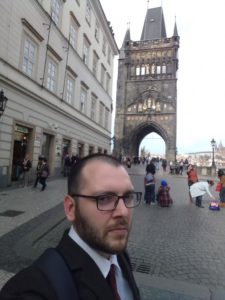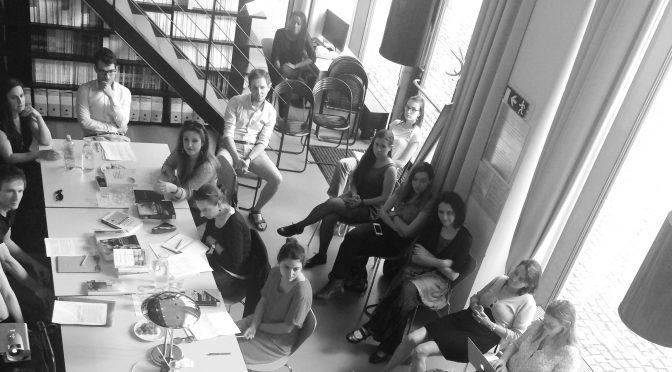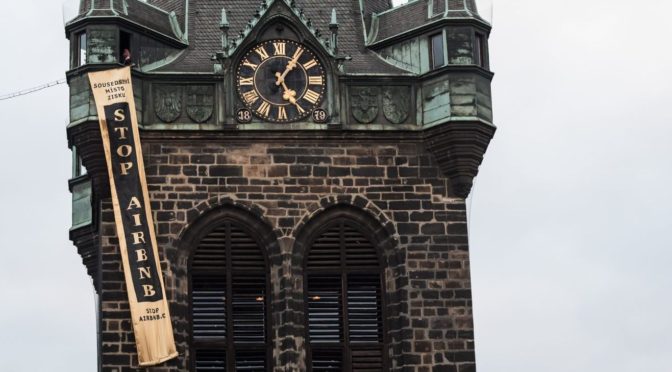PhD Students Workshop organized by EHESS and CEFRES will be held on the theme of Humanities and Social Sciences Facing the Unexpected.
Date: April 12th, 2021 (9:30-19:00)
Deadline for propositions: March 15th, 2021
Location: online and at CEFRES, Na Florenci 3 (Prague)
Language: English
Coordination: Falk Bretschneider (EHESS), Jérôme Heurtaux (CEFRES)
Supervisors: Michèle Baussant (CNRS/CEFRES), Falk Bretschneider (EHESS), Emmanuel Désveaux (EHESS), Jérôme Heurtaux (CEFRES), Pavel Himl (FHS UK), Claire Madl (CEFRES), Silvia Sebastiani (EHESS)
The sanitary crisis caused by the Covid-19 pandemic has thrown the whole world into deep uncertainty and radically shaken almost all our habits. This also applies to the research community. Lockdowns, travel restrictions, curfews, closures of libraries or archives and other measures of distance and protection have a direct and sometimes brutal impact on many scientific projects, especially those of many young researchers on fixed-term contracts. This context therefore leads us to question the ways in which humanities and social sciences can deal with uncertainty, the unexpected and the unforeseen, and this in two directions:
(1) On the one hand, it is a question of our own research practices, i.e., the techniques and methods that we have – or that remain to be developed – to confront us with a reality that has abruptly changed. In particular, how to deal with the sudden impossibility to access a research field or archives (whether it is due to the current pandemic or to any other unexpected event)? How to react in the face of external conditions making it impossible to carry out a project as originally planned? What opportunities offer the new means of remote research, but also what are the risks they entail – and how can we think about these two phenomena together in a methodological reflection that is both lucid and productive?
(2) On the other hand, it is relevant to raise the question of the rapid changes that sometimes affect our research objects, sometimes leading to their radical reformulation. The occurrence of an unexpected event or a brutal reversal – human history abounds in wars, revolutions, pandemics, or other cataclysms which each time induce a more or less complete reversal of the current norms and practices in the societies concerned. How can we analyse the effects of these transformations on past and present societies, both collectively and individually (biographical ruptures, etc.) and report on the forms of resistance and adaptation? How can we think about these disruptions, the reactions they provoke and the forms of resilience they give rise to?
We invite all PhD students interested affiliated to CEFRES, EHESS or a Czech University to submit their application, which will include, in a single PDF file, a CV (maximum two pages) as well as a brief description of the planned intervention (approximately 1.500 characters, including spaces). The workshop will be organised around the presentations of the young researchers and their discussion by the supervisors and other participants. In addition, there will be time for an exchange of individual experiences about the global pandemic. Please send your application by March 15th, 2021 to the following addresses: falk.bretschneider@ehess.fr and jerome.heurtaux@cefres.cz
More information:
falk.bretschneider@ehess.fr
jerome.heurtaux@cefres.cz
 My research is focused on the interrelation between the ideas of Pan-Slavism and Nationalism, within the Serbian cultural circle in Pest-Buda, in the first half of the nineteenth century. I chose this specific Serbian community as a case study, due to their central importance for the Serbian “national awakening” in the aforementioned period. What made this community special was its access to the printing press of the Buda University, which made its members the leaders in the knowledge production and distribution among all the Serbs living in East-Central Europe. Moreover, they had close connections with the Pan-Slavic movement of this time and, above all, with its main protagonists, like Ján Kollár and Pavel Jozef Šafárik. Through my research I intend to show not only the interrelation between the two ideologies (Pan-Slavism and Romantic nationalism), but also how they were adapted and transformed in the Serbian context. Continue reading Dušan J. Ljuboja: Research & CV
My research is focused on the interrelation between the ideas of Pan-Slavism and Nationalism, within the Serbian cultural circle in Pest-Buda, in the first half of the nineteenth century. I chose this specific Serbian community as a case study, due to their central importance for the Serbian “national awakening” in the aforementioned period. What made this community special was its access to the printing press of the Buda University, which made its members the leaders in the knowledge production and distribution among all the Serbs living in East-Central Europe. Moreover, they had close connections with the Pan-Slavic movement of this time and, above all, with its main protagonists, like Ján Kollár and Pavel Jozef Šafárik. Through my research I intend to show not only the interrelation between the two ideologies (Pan-Slavism and Romantic nationalism), but also how they were adapted and transformed in the Serbian context. Continue reading Dušan J. Ljuboja: Research & CV 




 Honoré Banidjè is a PhD student in history at the Pedagogy department of Charles University in Prague.
Honoré Banidjè is a PhD student in history at the Pedagogy department of Charles University in Prague.